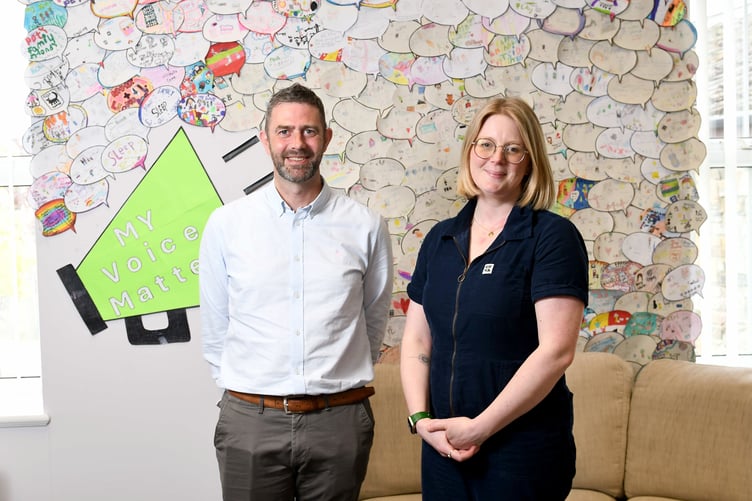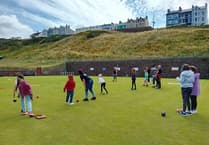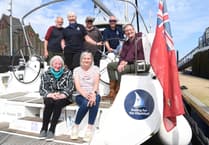I remember being in work a few years ago – in a different place to where I am now, I swear – and seeing the green fleeces of Isle Listen in our building.
I’d forgotten they were there for a workshop. My mood soared as I knew I was going to be able to skive off work for a few hours. Mentally I was feeling better just from seeing them, so technically, mission accomplished by Isle Listen. But the bonus was that it ended up being a wonderfully enlightening experience.
Isle Listen’s Wellbeing Solutions team is partly made up of Gareth Nicholson and Rebecca Macnair, who I had the pleasure of speaking with at the charity’s Castletown headquarters. They provide online and in-person mental health training for organisations and have put on workshops for everyone from corporates and the Isle of Man Constabulary to local sports teams, Rainbows, and care homes.
Despite the variety of the people they’ve worked with, Rebecca says a lot of the issues are consistent throughout different organisations.
‘Burnout is huge’, Rebecca told me, ‘Our courses are all evidence based, so we look at research around current trends and then create resources connected to those trends. We see a lot of stress coming from workload and time management struggles, which leads to burnout.’ Gareth believes the issue comes, in part, from the fact that though the ‘work we’re doing hasn’t changed much, compliance procedures, red tape, and risk assessments have increased ten-fold, making it more difficult to do the same work.’
They’ve also seen the aftereffects of Covid-19 have an impact on mental health in the workplace due to redundancies, changes in technology, and switching between working from home and being back in the office.
‘There’s greater awareness and understanding of mental health issues’ says Gareth ‘but cultures in the workplace are still lagging.’
The solutions team aims to help organisations guide employees who need support while also making those staff members build resilience. I asked if it was difficult getting people to speak up and interact with the workshops they put on.
‘People speak up quite readily’ Gareth told me. ‘We try to build a safe environment, so everyone feels comfortable sharing information. A lovely knock-on effect we’ve seen is people reaching out after the courses for more information and also to offer to fundraise for us, so it’s a nice full circle of people we’ve helped, helping us.’
For more information, email [email protected]





Comments
This article has no comments yet. Be the first to leave a comment.